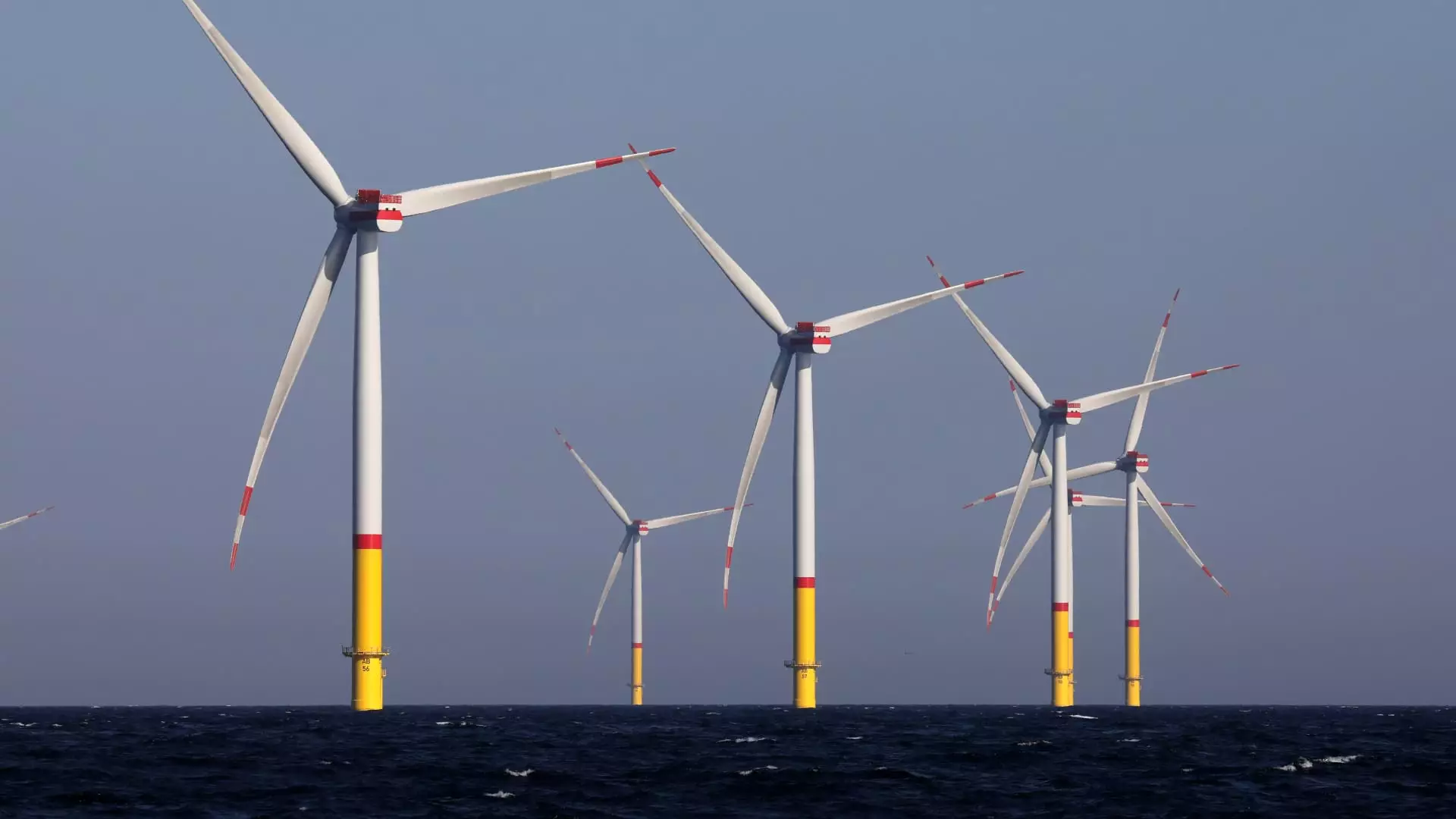The recent decision by the Trump administration to lift the halt on Equinor’s Empire Wind 1 construction epitomizes the tumultuous nature of American energy politics. As wind energy sources emerge as crucial to combating climate change and reducing fossil fuel dependency, the back-and-forth between policymakers presents a spectacle that straddles absurdity and urgency. This decision has far-reaching implications, both for the credibility of governmental agencies and the future of renewable energy in the United States, particularly in states like New York.
Empire Wind 1 is not merely another project in the wind farm pantheon; it represents a beacon of hope for a more sustainable energy future in New York City. This initiative, once completed, promises to power half a million homes and create 1,500 well-paying union jobs. New York Governor Kathy Hochul’s insistence on collaboration with federal authorities underscores a vital approach—one that prioritizes economic stability and environmental responsibility over political theatrics. Yet, underpinning this optimism is an alarming reality: the fragility of policy frameworks that govern energy projects is deeply concerning.
The Political Tug-of-War
Amidst the excitement surrounding the potential launch of Empire Wind, one must grapple with the circumstances that led to the prior halt in construction—a move not based on genuine environmental concerns but rather a display of political maneuvering. Secretary Doug Burgum’s assertion that the Biden administration rushed the approval process reflects a conflict that often overshadows substantive dialogue: political agendas can play havoc with critical energy initiatives.
It’s astonishing to witness a figure like Trump, who campaigned on the doctrine of energy independence, paradoxically stymie the very projects that align with that vision. His administration’s hostility toward wind energy has been unwavering, as evidenced by his repeated attacks on wind turbines—a bizarre fixation that overlooks the technology’s potential for innovation and job creation. Trump’s previous executive order to bar new offshore wind leases epitomizes a failure to recognize that progress is often born from collaboration rather than confrontation.
Union Jobs Versus Political Games
As the scaffolding of Empire Wind rises against the New York skyline, the value of creating solid, unionized labor cannot be understated. Equinor’s commitment to generating jobs while simultaneously advancing the renewable energy sector stands in stark contrast to the often-dysfunctional political narrative that surrounds energy development. Hochul’s proactive involvement in ensuring the project moves forward reflects a growing acknowledgment that the health of the environment and the economy are interconnected.
However, this delicate balance between economic growth and environmental responsibility can be shattered by the risks posed when political narratives dictate energy policy. Hochul’s advocacy for Empire Wind is a reminder of the public identity that energy companies must carry in the face of political tides—advancing initiatives while navigating through an adversarial landscape can dilute the potential for achieving climate goals.
The Cost of Inaction
The wait-and-see approach taken by certain political factions breeds uncertainty, and investors understandably hesitate when faced with a shifting landscape. The implications are severe: not just for this project, but for the future energy security of the nation. The aura of fear that enveloped the investor community during the previous halt warns of what can happen when energy initiatives become political footballs. Leaders like Hochul must lean into their roles as advocates of clean energy and firmly push back against the erratic behaviors of political actors bent on creating obstacles rather than solutions.
It’s vital that we, as a society, recognize not only the economic benefits of clean energy projects like Empire Wind but also the moral obligation we possess to confront climate change. The world is perilously close to tipping points that threaten both economic and environmental stability. As the tides change in American politics, so too must the conversation surrounding energy. We cannot afford to treat clean energy initiatives and climate policy as bargaining chips in the political arena.
A Call for Authentic Commitment
In light of the revived construction of Empire Wind 1, there is a pressing need for a cultural shift in how we frame our approach to energy. By learning from the missteps of the past—a past filled with reckless abandon for clarity and commitment—we can bolster our investments and ensure that quintessential projects are not victims of short-sighted political strife. Let the revival of Empire Wind 1 serve as a catalyst, urging us to think beyond mere profit and recognize the irrepressible moral imperative of transitioning to sustainable energy solutions.
The realm of renewable energy is not a battleground for ideological wars; it is our lifeline for a thriving planet and a sustainable economy. The winds of change are upon us, and it is our responsibility to steer them in the right direction.

